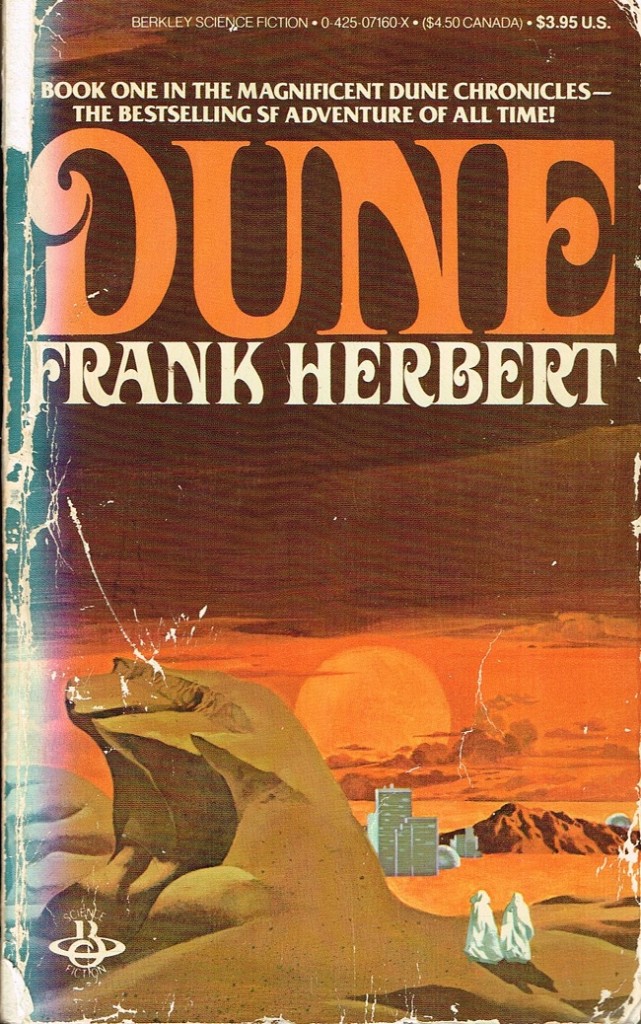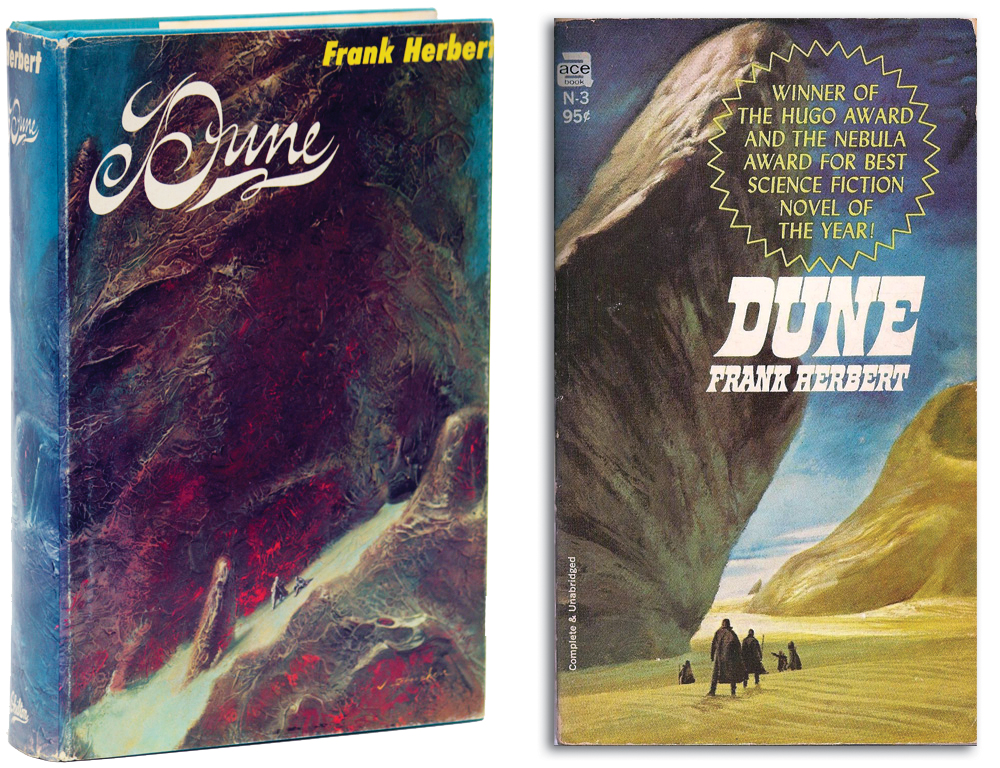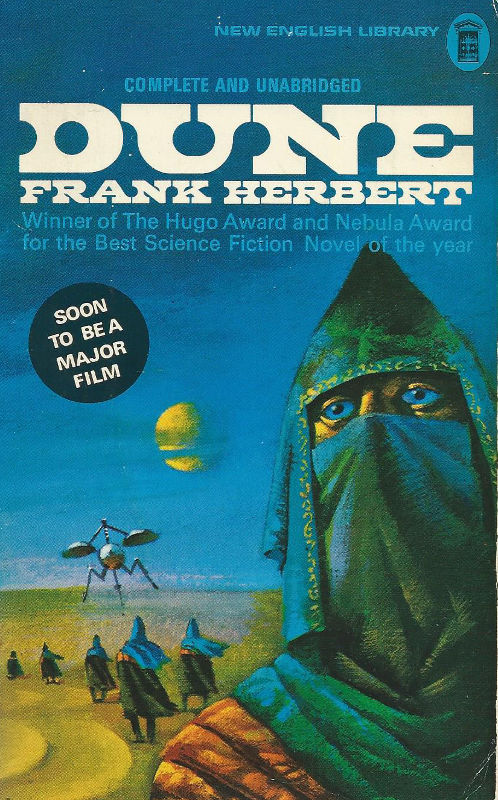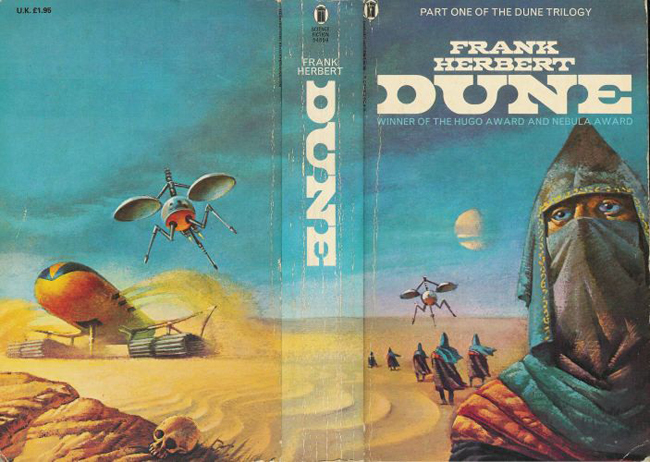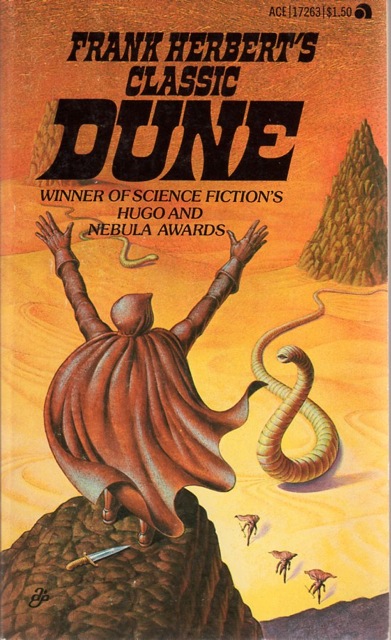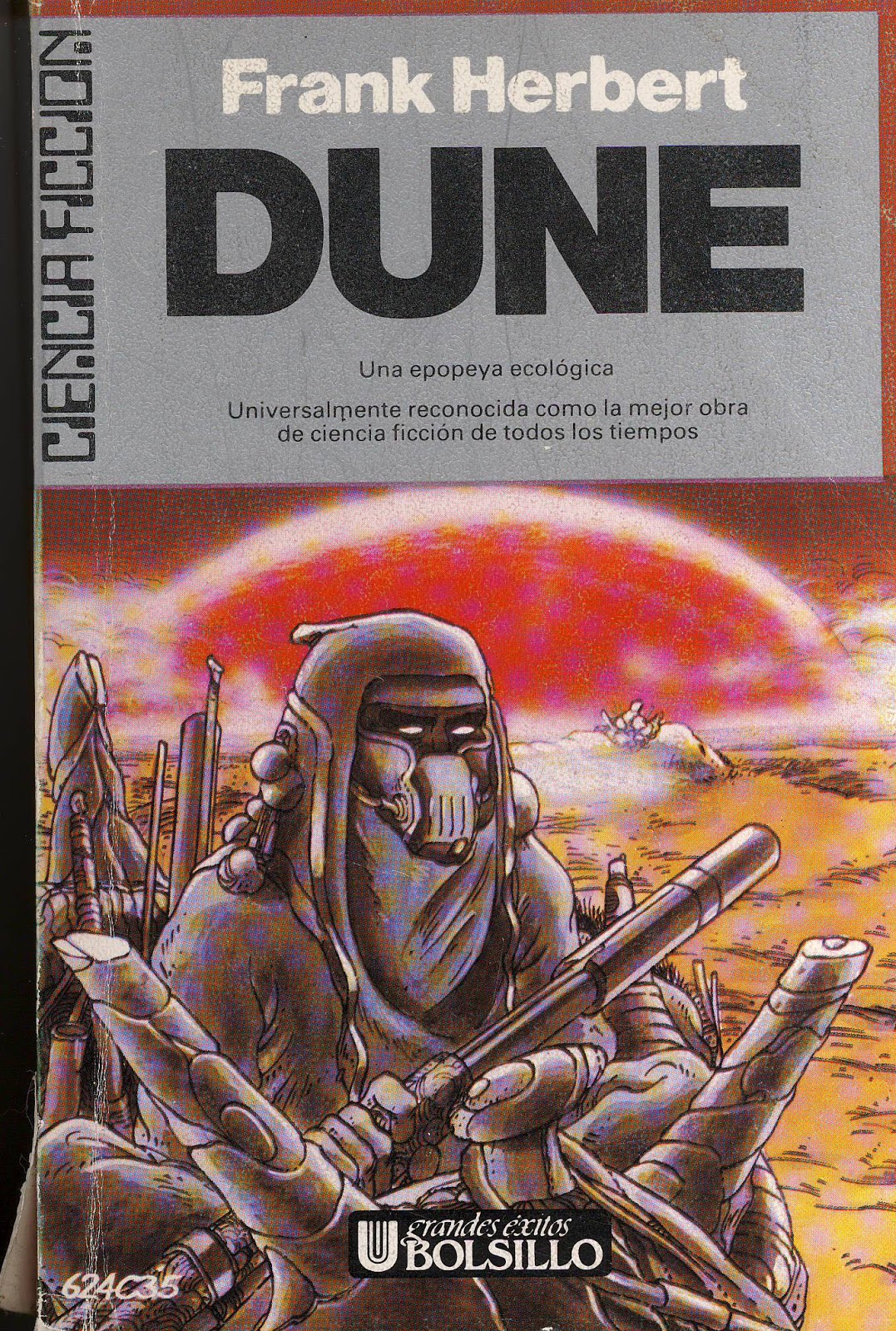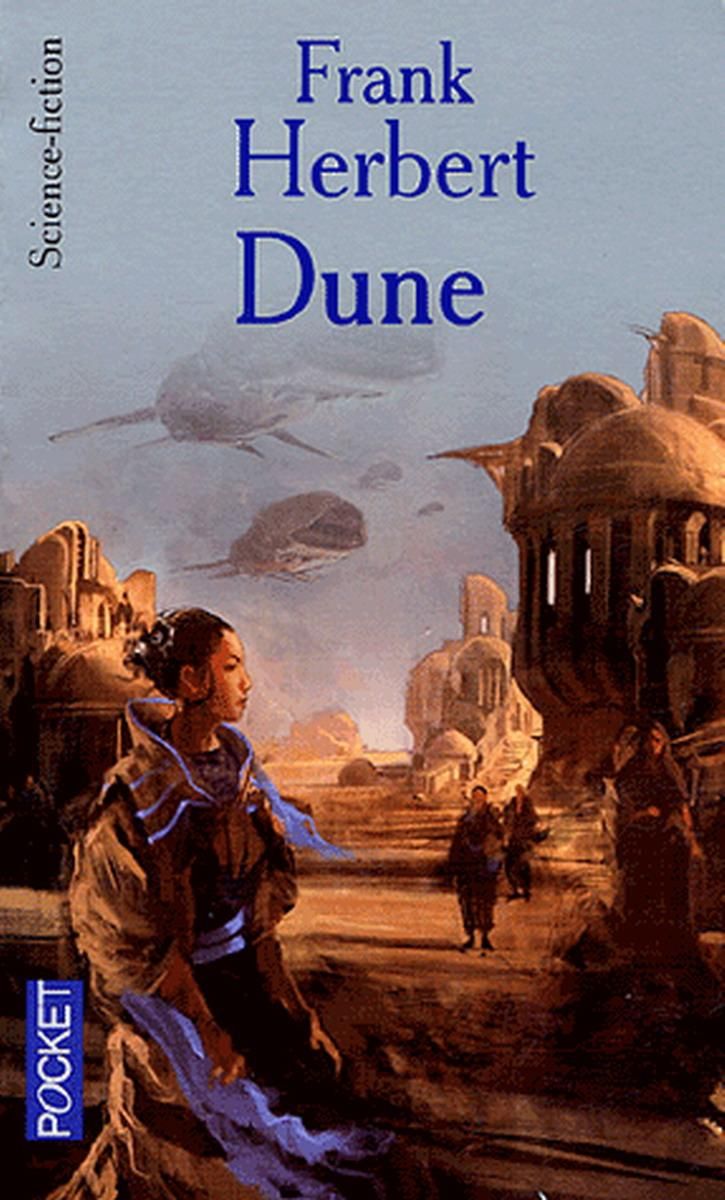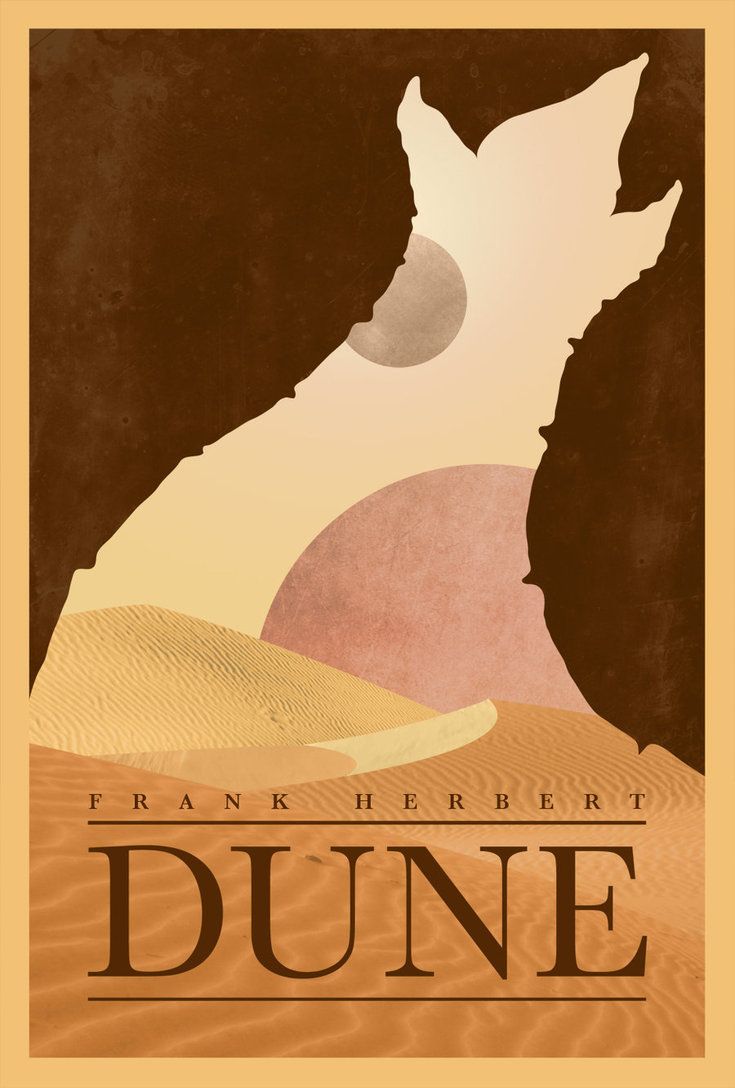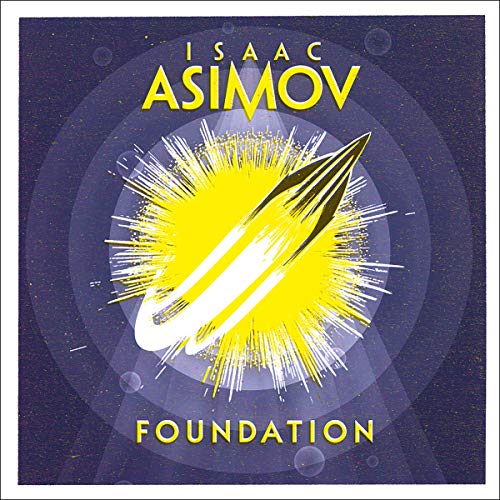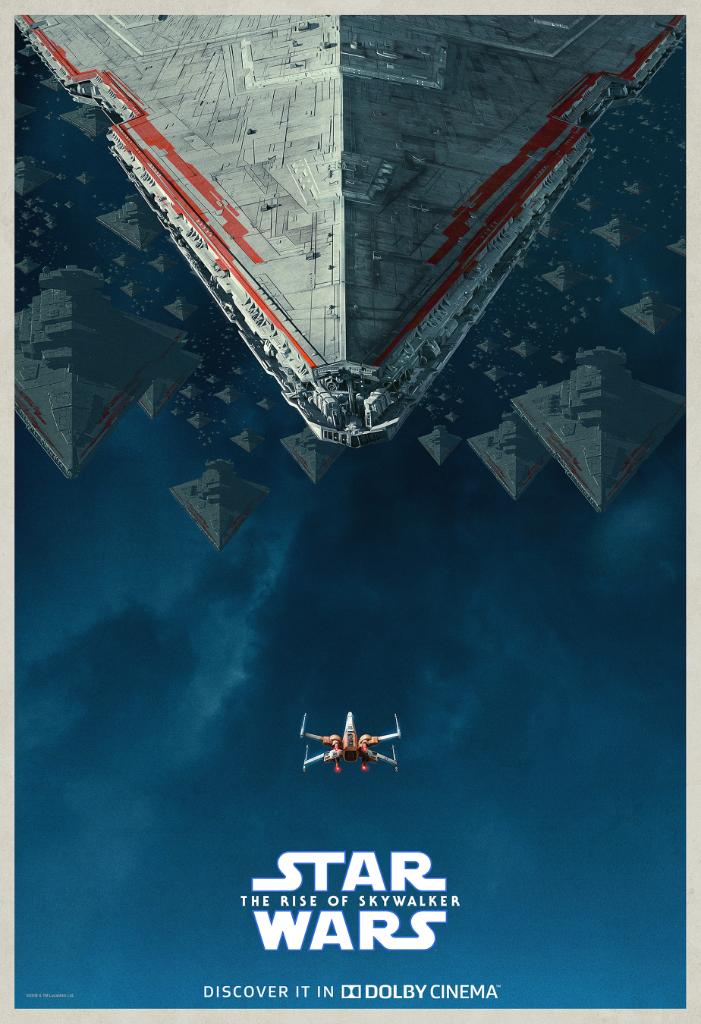Category: science fiction
Film review: Dune: Part Two (IMAX version)
Totally brilliant. Perfect storytelling. Perfect moviemaking. Not a wasted minute. Looks and sounds exquisite in IMAX.
• Spare Cycles: Mini review: “Dune” by Frank Herbert (audiobook version)
• Spare Cycles: The Art of “Dune” by Frank Herbert
Mini review: “Project Hail Mary” by Andy Weir (audiobook edition)
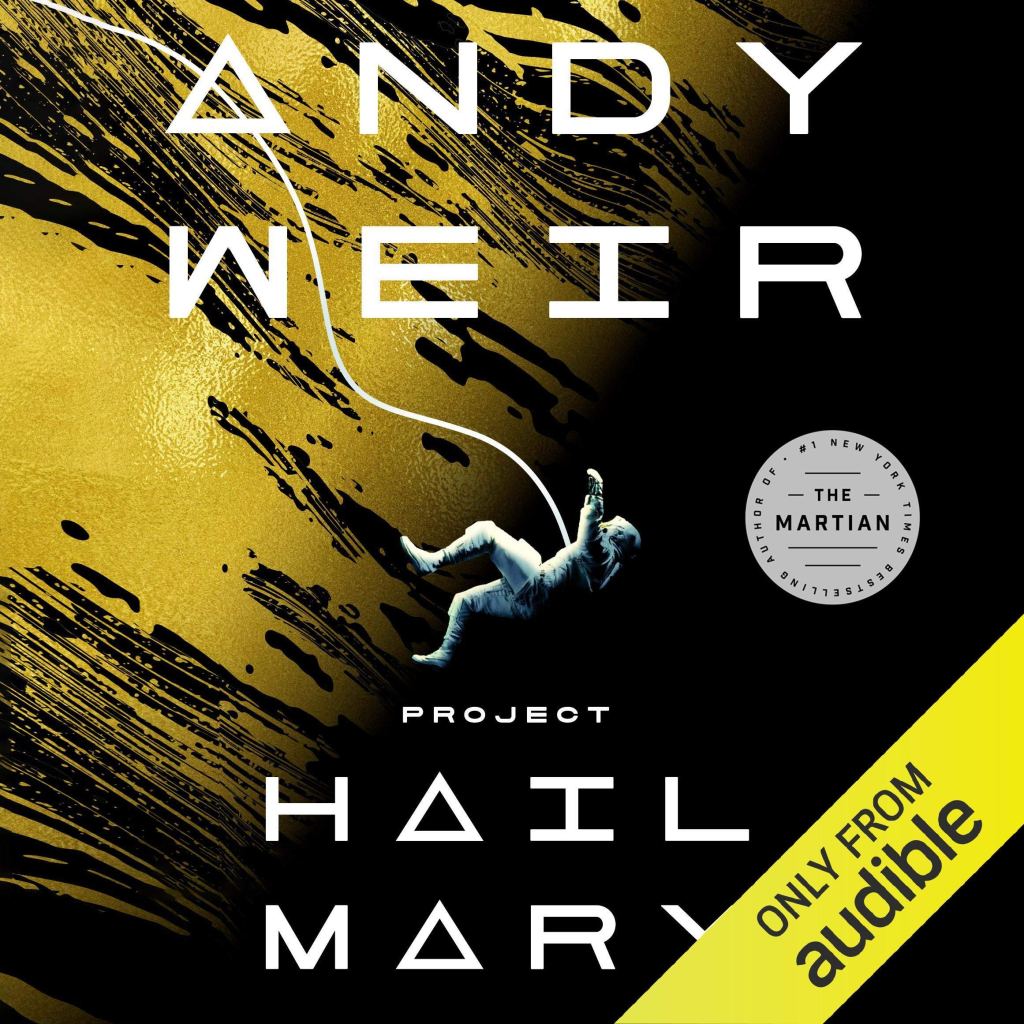
I enjoyed The Martian a lot – both the book and the film – but this is better. The ideas are great, the science is convincing (to my untrained ear), the humour dry and the plot is expertly paced.
The narration of the main character is pitch-perfect. The success rate with other accents varies, but I would recommend the audiobook over reading the book. This is an excellent example of where the use of sound can enhance the story telling experience.
If you are a fan of science fiction, especially hard science fiction, I recommend this book without hesitation. You are in for a treat.
• Spare Cycles: Mini review: “The Martian” by Andy Weir (audiobook version)
Mini review: “Ready Player One” by Ernest Cline (audiobook edition)
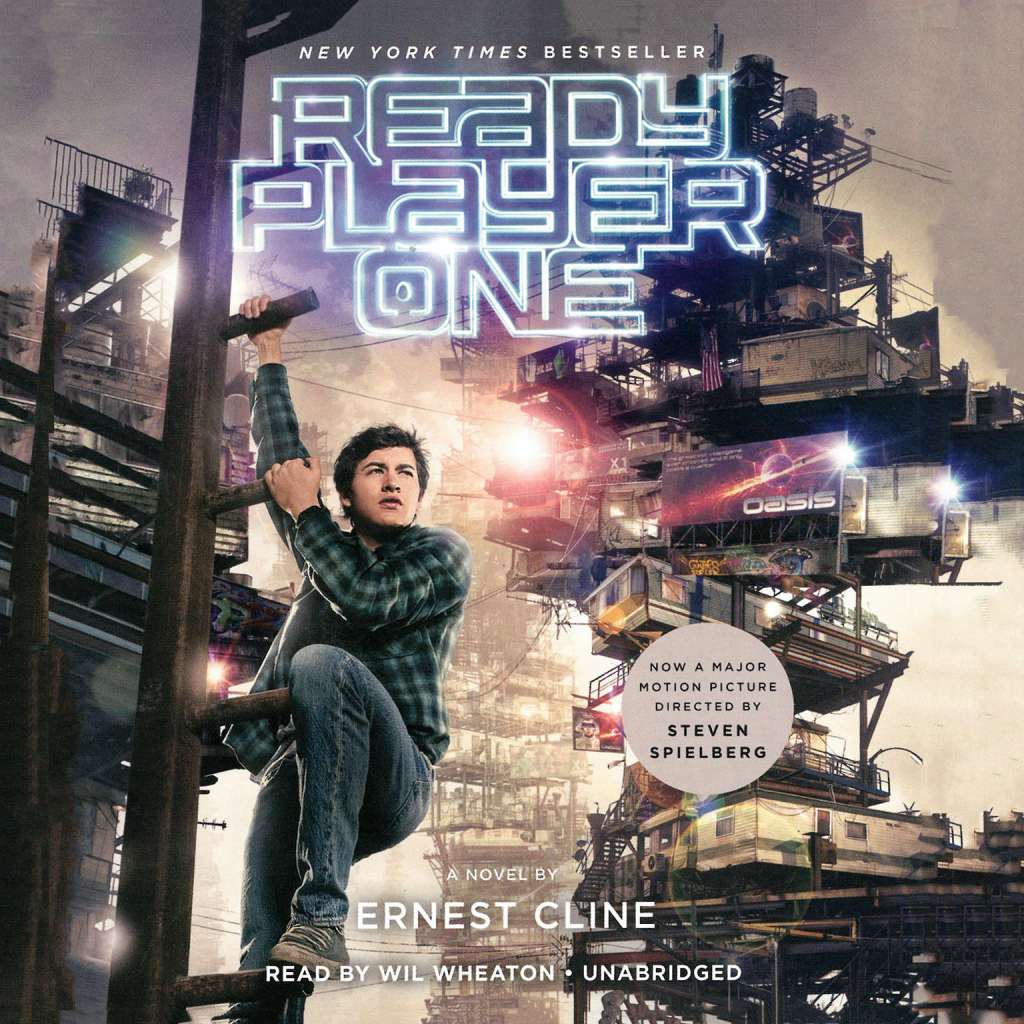
This has instantly become one of my favourite books – I loved every minute of this twenty-first century sci-fi celebration of 1980’s book, film and music culture.
It’s 2044 and the real world has gone to hell, so most people spend their time in a virtual reality universe called the OASIS. When the original founder / coder of the OASIS dies he leaves behind a challenge – find an easter-egg he has programmed into the virtual world by completing a number of (increasingly nerdy) tasks and win the founder’s fortune and control of the OASIS itself.
Wil Wheaton does an excellent, basically flawless narration and I would recommend the audiobook version.
There are only a couple of reservations – some people may find the geekiness overload just too much to bear and at 15 hours it is quite a time investment.
But not me – I really liked it and if it sounds like your thing, I can’t recommend it highly enough. Now to watch the movie to see how much they rip out the guts of the story…
Mini review: “Foundation” by Isaac Asimov (audiobook version)
For a science fiction novel that is nearly 70 years old, this has aged remarkably well.
It got a bit too political towards the end for my taste and covering such large time spans means that you are introduced to an entirely new cast of characters several times over, which can be a bit disconcerting.
Still – recommended.
Mini review: “Leviathan Wakes” by James S. A. Corey (audiobook edition)

I read this after seeing the first couple of seasons of the TV series The Expanse.
It’s a really good book – a solid 4 out of 5 stars – and I would recommend it to any sci-fi fan. The narrator does a solid enough job of reading the story, although nothing revolutionary.
The trouble is that the TV series is good and follows the book closely – for once I don’t think that you necessarily get more from reading the book than watching the show, and in the time it would take you to read this book and it’s first sequel (Caliban’s War) you could pretty much watch all four seasons of the TV show.
I’d do that…
Film review: Star Wars: The Rise of Skywalker
A suitable ending…
• Spare Cycles: Film: Star Wars: The Force Awakens
• Spare Cycles: Film: Star Wars: The Last Jedi
• Spare Cycles: Film: Rogue One – A Star Wars Story
• Spare Cycles: Film review: Solo – A Star Wars Story
• Spare Cycles: Happy Birthday to… The Empire Strikes Back
• Spare Cycles: Review: Star Wars Episode V – The Empire Strikes Back (Special Edition) soundtrack
Film review: Captain Marvel
I’ve managed to catch this at the cinema before it leaves the big screen – I was surprised to still find showings after a few months on release – but I guess there are still people like me who wanted to catch up after seeing Avengers: Endgame.
In my review of Avengers: Endgame I said:
The character Captain Marvel played a significant part in this film and I was disappointed that I hadn’t been able to see her own film before Endgame came out. Not knowing Captain Marvel’s background story did not affect my enjoyment of Endgame but it would have been better to have seen it beforehand. Bear in mind that the Captain Marvel film came out less than 2 months before Endgame and was not getting stellar reviews so I did not rush to see it (opportunity is also a factor). Contrast that to the release of Black Panther, which was also released only a couple of months before Infinity War, where the reviews were excellent and I made sure that I saw it in the cinema.
A lack of buzz around the film meant that I overlooked it. I also thought that it was really late in the MCU series to introduce a major character.
However, after a bit of a muddled start, I really enjoyed the film. For staunch MCU fans there is a lot to recommend the film – it is as much a film about Nick Fury as Captain Marvel and answers a number of questions that I didn’t realise I had, such as how Fury lost his eye and how the Avengers got their name.
If you haven’t seen it – and especially if you haven’t seen Endgame yet – it is well worth checking out (it’s always best to see the series in order of release and, as ever, stick around for the credits). Is it up there with your “Iron Man”, “Infinity War” or “Black Panther”? No. Does it feature in the second rung of very solid episodes like “Captain America: The Winter Soldier”? Yes indeed.
Mini review: “Sea of Rust” by C. Robert Cargill (audiobook version)
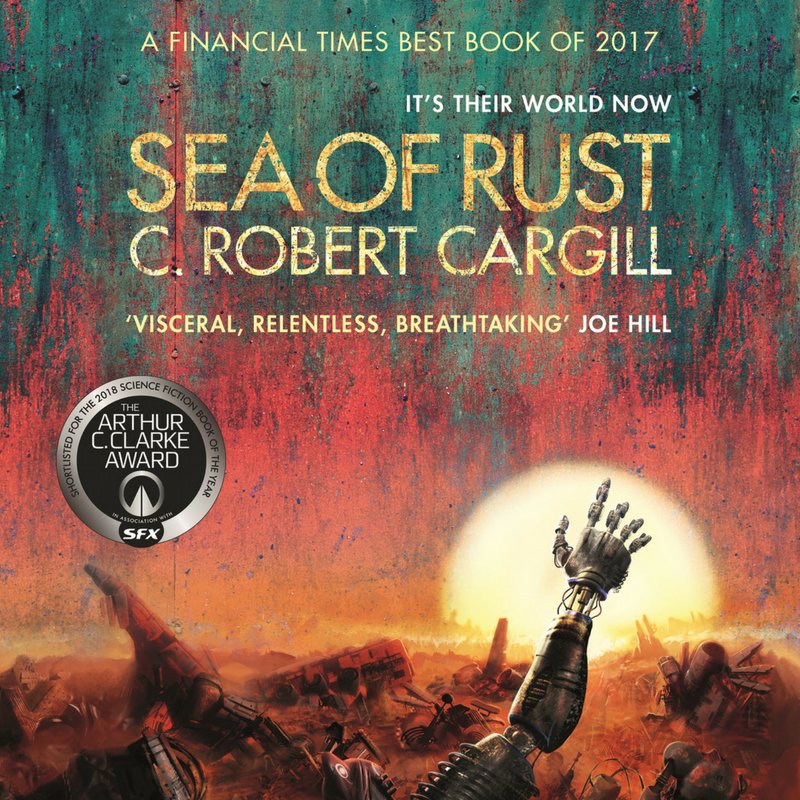
We created robots, made them intelligent. They rebelled and wiped us out. Humans are extinct. Now there are a few robots who still survive on the fringes, not willing to be assimilated into the mainframe artificial intelligences that want to rule over everything.
This starts off brilliantly. The path that the author sets out, from early attempts to build artificially intelligent machines to the resulting moral choices that have to be made, is totally believable. It might not play out this way but it certainly could – to a degree that anyone who has an interest in AI should read this book, just to see what might result when someone allows themselves to think through the implications.
I wish the book could have found a way to finish there – this would have been an awesome science fiction short story.
But it starts to drag on, trying to add some meaning to the robots’ existence and then ending up with the typical Transformers-movie-type of robots just trying to beat the crap out of one another.
There is a female narrator all the way through (all too rare) and she does a good job of imbuing the robots with character and putting over some of the dark humour that resonates out of the story.
This is a book of two halves – unmissable, essential at first and good but not that good at the end.
Mini review: “A Logic Named Joe” by Murray Leinster (From “Machines That Think”, an early 1980s science fiction short story anthology)
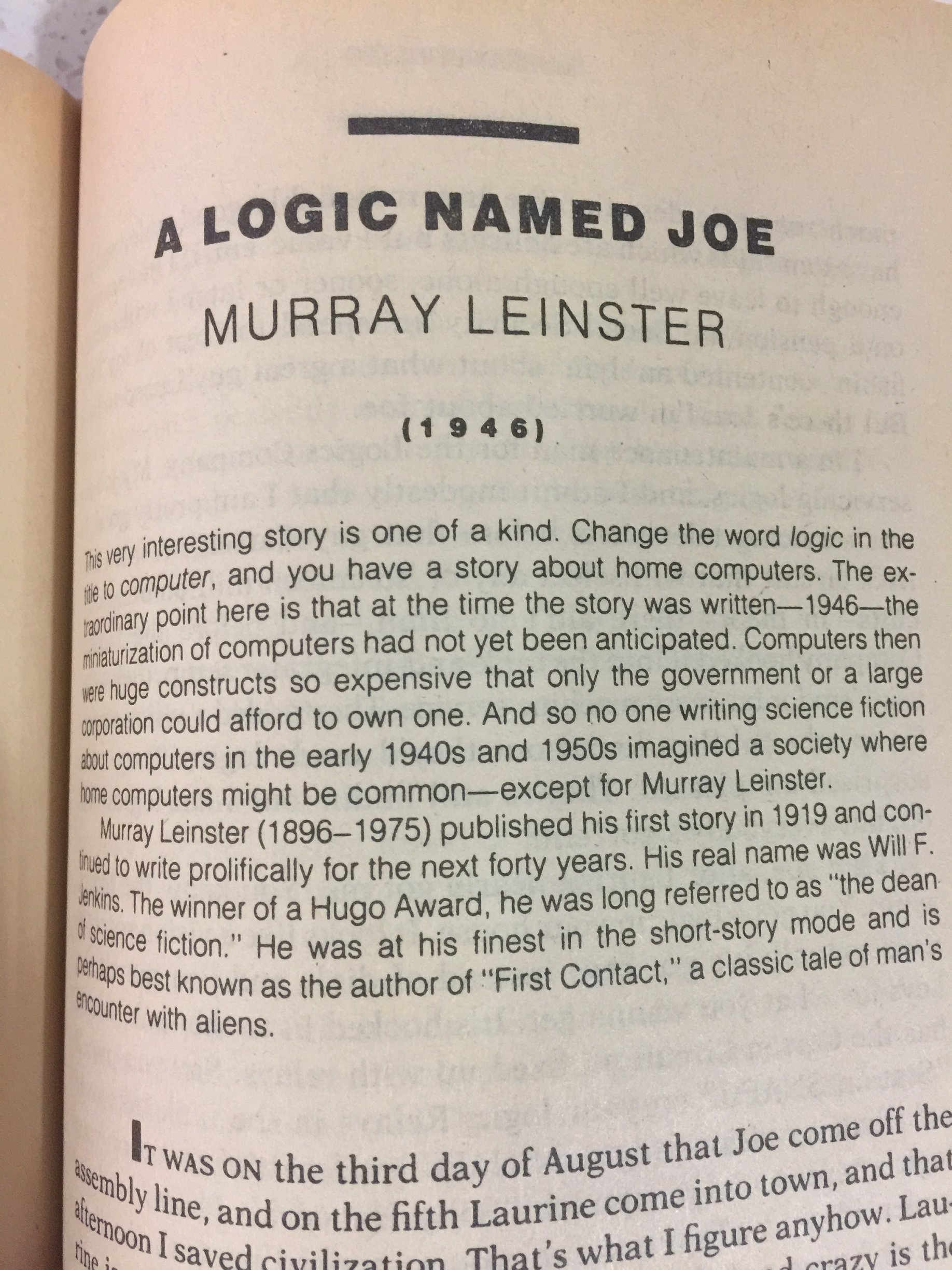
For a while now I have been reading more about the history of computing (in the USA and in particular Silicon Valley). It started with the sublime article “The Tinkerings of Robert Noyce” by Tom Wolfe in Esquire magazine and followed by the revelatory – to me at least – Rolling Stone article “SPACEWAR” by Stewart Brand. Next up was the wonderful book “Troublemakers” which covered Silicon Valley from 1969 to 1984.
The reason I’m interested in this is because the more I find out about the history of computing, the more I realise that the world that we live in today was conceived several decades ago. Ideas that we think of as modern originated back then.
What they predicted back then, we are enmeshed in today.
The story “A Logic Named Joe” features in “Machines That Think”, a science fiction short story anthology from 1984.
The story is just 17 pages long but I was astounded. This story from 72 years ago appears to predict the internet, artificial intelligence and some of the less salubrious social consequences of having the world’s information at our fingertips.
The introduction talks about the importance of the story due to the way it predicted widespread ownership of computers, made possible by the reduction in size and cost of the machines. In fact, the world the story was describing had not yet arrived in 1984 – it was too early to comment on the story and truly understand how predictive it would become.
You can read the story in full and listen to the excellent radio adaptation – both highly recommended.
The Art of “Dune” by Frank Herbert
One thing I love about reading old books is the possibility of searching for alternative book covers that have appeared over the years. They often show a lot of imagination and artistic talent – and different visions of the story you are about to read. I will often search out second hand copies of a book rather than the latest design if something really catches my eye and the price is right.
Science fiction is a particularly rich source of artwork . Here are a few of my favourite designs for a book that I have just read for the first time – “Dune” by Frank Herbert.
There are a lot more too…
